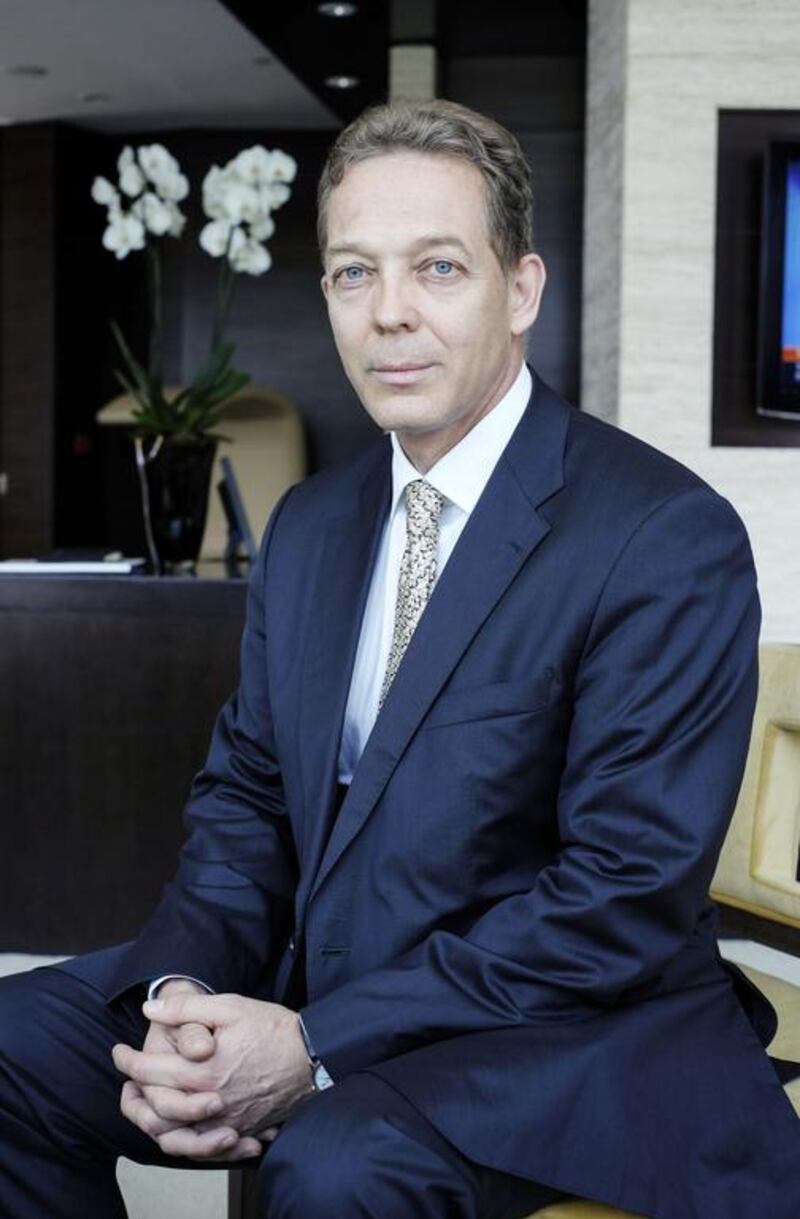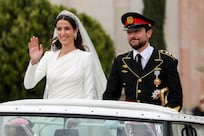DUBAI // A leading United Nations official has urged global donors not to forget Syria and ensure their compassion continues for the country’s displaced people, despite the conflict there now having raged on for more than three years.
Daniel Endres, director of external relations at the United Nations High Commissioner for Refugees (UNHCR), said the recent troubles in Iraq were further overwhelming his organisation.
“People are getting used to Syria being in crisis,” said Mr Endres, who was in the UAE on a three-day visit to meet key officials to discuss Syria.
“The novelty of the conflict and the compassion is becoming weaker as the conflict drags on. This year alone there have been 600,000 additional refugees from Syria.
“The situation is getting much more serious, people are much more desperate. Yet there is a certain level of donor fatigue. How many times can people mobilise for a crisis like this?”
He said the UAE and other Arabian Gulf states, however, had been trying to counter this fatigue.
“We have seen lots of initiatives from the Gulf. The contribution from the UAE’s private sector, the Government and from Qatar have came in at a very important moment.
“The Big Heart campaign has been helpful in mobilising the public and bringing awareness to the people in the Gulf,” he said.
Recently, the Sharjah-based charity gave Dh5.5 million to support education programmes for Syrian refugee children.
Sheikha Lubna Al Qasimi, Minister of International Cooperation and Development, also visited Jordan’s Za’atari refugee camp, which houses more than 90,000 Syrian refugees.
Mr Endres said: “There is an enormous amount of compassion and solidarity for the very sad situation in Syria. It is a human tragedy of unprecedented proportions. It is very important to let Syrians know they haven’t been left alone.”
The UN refugee agency said its existing humanitarian budgets and resources were completely inadequate and stretched as the number of refugees continued to rise.
The World Refugee Report, released last Friday, found that more than 51 million people became refugees, asylum seekers or were displaced inside their own countries by the end of last year.
Officials said this huge number exceeded the displacement caused by the Second World War.
“The number of displaced people has never been so high, 51.2 million is a huge nation. More than one million refugees were from Somalia and another 300,000 to 400,000 were from Mali.
“There is also Cote d’Ivoire, Congo, Afghanistan, Myanmar and the ongoing crisis in Syria that is displacing people,” Mr Endres said.
“One third of our staff and budget is focused on the Syrian situation. We are stretched as a humanitarian community. The solidarity of the Gulf and the rest of the world is absolutely vital.”
To add to the ongoing humanitarian conflict, at least 300,000 Iraqis have fled their homes and temporarily settled in the Kurdish region of the country, while another 200,000 have fled to other parts.
“We are struggling to keep up with the needs of Syrians and this [Iraq] has doubly overwhelmed us. It came so suddenly. We are responding with tents and blankets and initial emergency [aid],” the UN chief said, adding that he feared that fewer people were returning to their homes, even after conflicts had ended.
“We see one of the lowest figures in many years. It is an indicator of a global trend of more conflicts and fewer solutions. We are extremely concerned with this. It has driven up tragedies, displacements and their needs,” he said.
“Science shows about 50 per cent of countries fall back in to conflict within a period of five years. That risk is always there. Once there is a chance for peace, one should engage seriously on all fronts.”
He added: “Peace and reconciliation is important in every crisis.
“What we do is we only apply Band-Aids. We don’t bring solutions to a conflict, but we help the communities that are most affected and vulnerable.”
pkannan@thenational.ae






